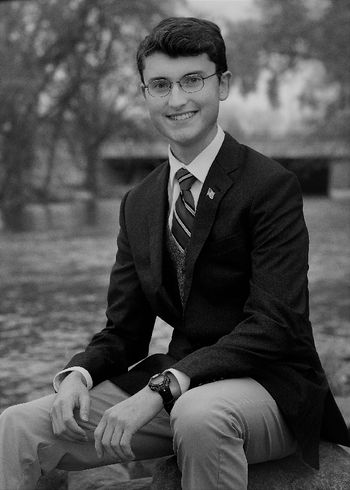Tech rights, free speech rights groups say Facebook facilitates government censorship
Both foundations have joined forces by co-writing an open letter to Facebook CEO Mark Zuckerburg urging him to enact pro-free-expression policies consistent with his prior statements within the past year praising free speech.
The Foundation for Individual Rights in Education found in a study that “77.4 percent of surveyed institutions choose to employ a blacklist of prohibited words not disclosed to the public,” which for one school includes an emoji.
The Electronic Frontier Foundation’s Civil Liberties Director told Campus Reform that this censorship by public colleges “is as dangerous in the public university context as it is [with] any governmental official...”
The Foundation for Individual Rights in Education (FIRE) conducted a revealing study on secret social media censorship perpetrated by public colleges and universities. FIRE asserts that this censorship by public entities violates the First Amendment, with some of the actions including blocking users and filtering content, which for one school included blocking an emoji.
Among the censored words were “Silent Sam” at the University of North Carolina-Chapel Hill, as well as the names of political candidates Donald Trump, Hillary Clinton, and Bernie Sanders at Portland State University, Oklahoma State University, the University of Arizona, and UNC-Chapel Hill. Arizona State University censored derogatory political labels, such as “Trumptards” and “NObama.” Oklahama State University was the only university to also censor at least one emoji: the middle finger.
FIRE says, “[b]ecause Facebook is a private entity, the First Amendment—which only limits government actors—does not require it to honor expressive freedom,” but nonetheless, “Facebook provides governments the tools to censor. These actors include public universities and colleges which are bound by the First Amendment…”
This has prompted FIRE to team-up with the Electronic Frontier Foundation and issue an open letter to Facebook Founder and CEO Mark Zuckerburg, urging him to enact policies that promote free expression, especially regarding government accounts. The two organizations reminded Zuckerburg of his past praise for free expression in an October speech at Georgetown University and said that this is one of those times where free speech needs real action in order to be preserved, lest government colleges use the platform’s tools to silence dissent.
“These tools include Facebook’s automated content filters, which allow state institutions to automatically ‘hide’ users’ comments if they contain words included on Facebook’s undisclosed list of offensive words or the government actor’s customized list of prohibited words” explains FIRE.
Electronic Frontier Foundation’s Civil Liberties Director David Greene told Campus Reform that people need to realize that these actions are actually government overreach.
“I hope people care about government’s ability to silence dissent and squelch public opposition. That is what public universities, an arm of state governments, do when they use keyword filters and other methods of removing publicly authored content from their social media pages,” said Greene.
“This practice is as dangerous in the public university context as it is when any governmental official or agency blocks members of the public either from participating in a discussion...or having access to the information published there,” Greene added.
Greene added that in both types of scenarios, “government takes control of the public dialogue, picking and choosing the speakers,” and, “has the ability to hide public criticism and artificially amplify public praise.”
Through public records requests, FIRE reports that it found that “[h]alf of the surveyed institutions choose to use Facebook’s ‘strong’ profanity filter, and nearly a third—55, or 27.8 percent—use the ‘medium’ filter.”
“T]his means that 77.4 percent of surveyed institutions choose to employ a blacklist of prohibited words not disclosed to the public,” the organization explained.
The survey also found that “nearly a third of the universities surveyed (59, or 30.3 percent) use a custom blacklist…”
FIRE also cites how the Supreme Court recognizes that “while in the past there may have been difficulty in identifying the most important places (in a spatial sense) for the exchange of views, today the answer is clear. It is cyberspace — the ‘vast democratic forums of the Internet’ in general...and social media in particular.”
FIRE has put together “a visual demonstration of how ‘government speech’ and the interactive digital spaces work on Facebook (left) and Twitter (right),” explaining that while universities have the right to decide what they post, they do not have the right to moderate the “interactive” comment spaces below posts.
FIRE says, “Because the First Amendment protects users’ speech in these interactive spaces, government actors like public colleges and universities cannot censor user comments in that [interactive] space because they disagree with the viewpoint expressed.”
Follow the author of this article on Twitter: @Jonathan_M_Jr

